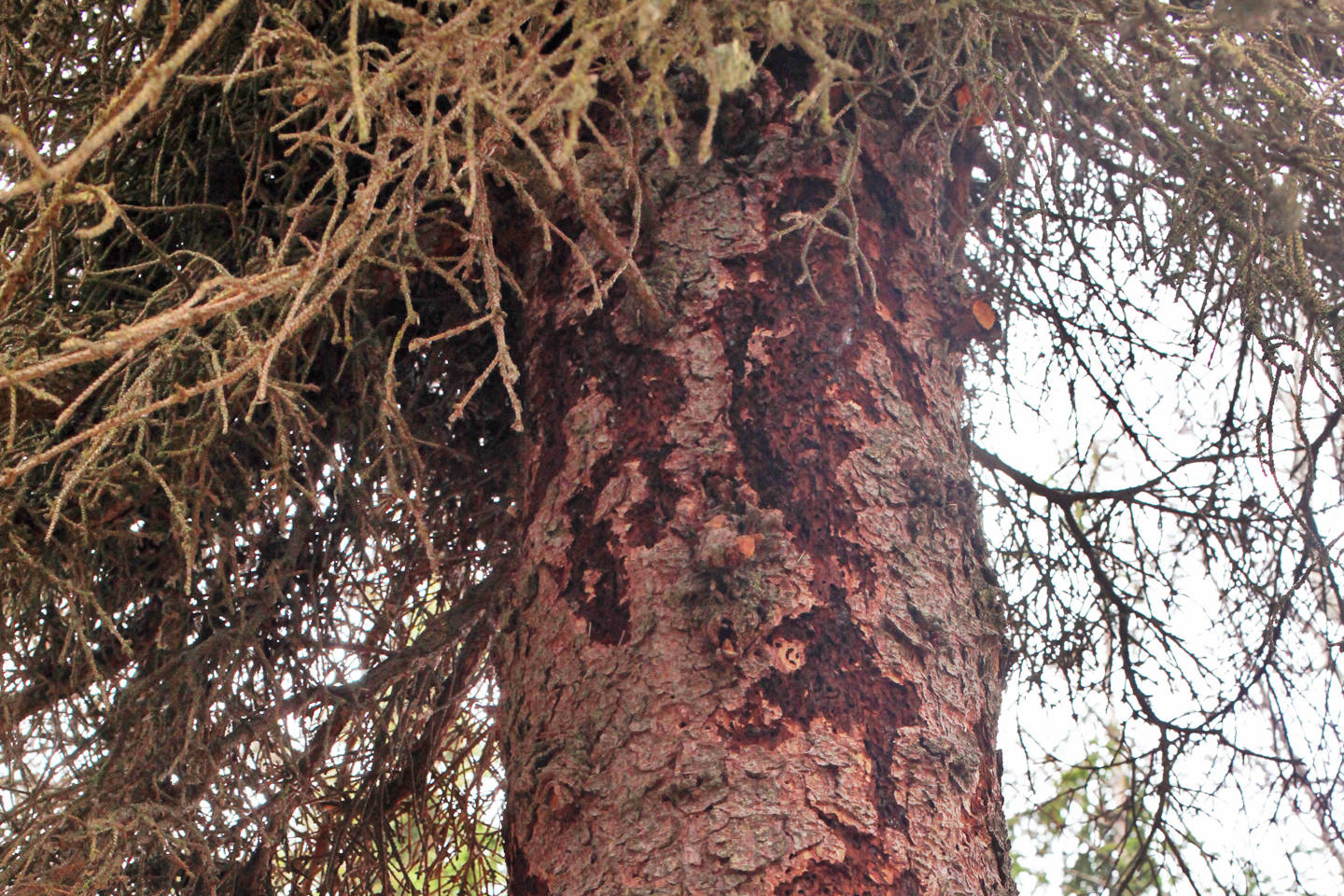ANCHORAGE — The threat of falling trees brought on by insects and exacerbated by climate warming will close two Alaska state campgrounds this summer.
Campers could be hurt by toppling trees killed by spruce bark beetles, whose infestations are accelerated by mild winters and hot summers, according to the Alaska Division of Parks and Outdoor Recreation.
“We have been experiencing a number of rotten trees falling over in the campgrounds this season, and while the timing is unfortunate, we need to take action now to reduce this hazard and help make our parks safer,” Ricky Gease, state parks director, said in the announcement.
The campgrounds, with more than 100 campsites, are south of Denali National Park. Byers Lake Campground is in Denali State Park, and the South Rolly Campground is in the Nancy Lake State Recreation Area.
The state plans to hire contractors to cut down and remove rotten trees. However, to avoid spreading beetles, the state plans to do the work in cold weather. That means campground closures likely will last through summer and could extend into next year, the parks division said.
Spruce bark beetles caused major damage in Alaska forests late last century, one of the earliest signs scientists cited as evidence of climate change in the country’s largest state because milder winters allowed the insects to flourish.
Aerial surveys through 2006 found that spruce bark beetles had killed mature white spruce trees on 6,875 square miles. Much of the damage occurred on the Kenai Peninsula south of Anchorage.
Glenn Juday, professor emeritus of forest ecology at the University of Alaska Fairbanks, said in an email that bark beetles always have been present in Alaska.
“With a warmer climate, environmental conditions allow more frequent, larger, and much more extreme swings to the outbreak mode in which most controls on beetle population expansion are overcome,” he said.
A major outbreak requires extensive stands of mature trees and something that triggers stress in the trees, such as heavy snow or high wind. Drought also stresses trees.
Warm summers allow spruce bark beetles to develop in one year instead of two or mature enough to withstand winter cold without dying. During a large-scale outbreak, Juday said, repeated attacks can weaken even vigorous trees, making them vulnerable to dying.
Following outbreaks in the late 20th century, Alaska has had years of forest regrowth and buildup of a greater percentage of trees at a vulnerable age.
“We had a couple of cold winters that knocked the beetle population down, but strings of back-to-back mild winters are common now,” he said. “Average summer temperatures are warmer, summers are longer now, and extreme summer warmth is more common, so the rapid beetle development mode and tree stress are common now, too.”
• By DAN JOLING, Associated Press

